Psychedelic Speed Freaks interview
Psychedelic Speed Freaks is a new power trio led by Munehiro Narita, founding member of Japan’s legendary High Rise and easily one of the wildest, most original guitarists in rock history. Blazing in total hyper-saturated glory, Psychedelic Speed Freaks centers on the raw, unrelenting attack of Narita’s “motorcycle fuzztone guitar” and a rhythm section driven by a pair of untamed L.A. acid punks. Recorded deep in-the-red and punched into overdrive, Psychedelic Speed Freaks is a full-throttle adrenaline shot into the 21st Century. Interview with legendary Munehiro Narita and David Jasso.
How did you all get together? Can you elaborate the formation of Psychedelic Speed Freaks and its concept?
David Jasso: Initially, the band was assembled to be a backing band for Narita to play a single Chicago Psychedelic Festival called Million Tongues Fest. Steve Krakow, AKA Plastic Crimewave (interview here), called me asking if I would be into coming to the show to play with Narita on what would be nearly 20 years since playing in the US. At first it was more of a daydream of his playing around with something that probably wasn’t going to happen but too cool not to give it a shot. I don’t think any of us really knew if it would become reality until Narita appeared in the flesh. My relationship with Steve grew from a couple tours through Chicago with 2 different projects of mine being the tour openers for Acid Mothers Temple, the Antarcticans and OGOD. We also played together when he came to LA and put me on bass for a show with him and Djin Aquarian of Yahowa 13, they were playing together and he asked if I would play bass, I had never played bass live before since I am a guitarist. So Steve’s actually probably responsible for me even being a bassist. Maybe our relationship fully formed when someone stole the guitar from the backstage I loaned him, it was my wife’s that I didn’t even ask to borrow, it was fucked. It was terrifying but in 24 hours the powers of Facebook returned the guitar back to us. Steve sent a care package after of every High Rise and Mainliner momento he had, he has seriously every flyer of every US show they did, because he made them. Steve is sort of the US caretaker of Psychedelia. Making music of course, but also he’s always doing illustrated books and magazine articles about the history of underground musicians. He knows seemingly everything about anything Psychedelic. Like, I usually don’t know the names of most everyone in the bands I like or song titles or album titles or anything really. I can be so obsessed by something and still not be curious enough to know who they are unless I have every record and it embarrasses me not to know. Like I love Brainbombs, a lot, but I don’t know anyone’s name in it. I’m the worst. But Steve knows everything and seems to personally know everyone. He was especially involved with the Japanese Underground bands coming to the US in the late 90s. Steve was making the posters, setting up shows, opening for and sometimes playing in groups with them, and connecting the musicians to others across the country, spreading the word of these soon to be legendary bands all before social media. He was in many ways an ambassador for several Japanese psychedelic touring bands back when Psych wasn’t even a thing here in the states. It was in this era a lot of Americans like myself got wind of these groups that were entirely different from anything of the time, especially compared to American bands, and their common thread of improvisation and wild performance energy would become the music I love most in Rock and Roll music.
“Seeing him play guitar in person is incredible.”
Steve knows I’m a psycho fan of High Rise. I had already unlocked a crazy dream come true having worked years earlier with Narita releasing his first album of Green Flames on my label, Assommer. Green Flames was then a new trio of his and it was very exciting for me to help the band release their first album. Then a few years later, I flew to Tokyo on my first ever trip to Japan just to see Green Flames and Mainliner play at UFO Club together. That night, I met Narita in person and his set was so great. Seeing him play guitar in person is incredible. That night ended with Kawabata Makoto giving me his guitar to play on stage ending the Mainliner set. That night would be, up to that point, the most surreal thing that had ever happened, and it wound up being a huge almost crossroads event. Maybe that night helped pave the way for the PSF band, something that I’m sure neither of us imagined happening.
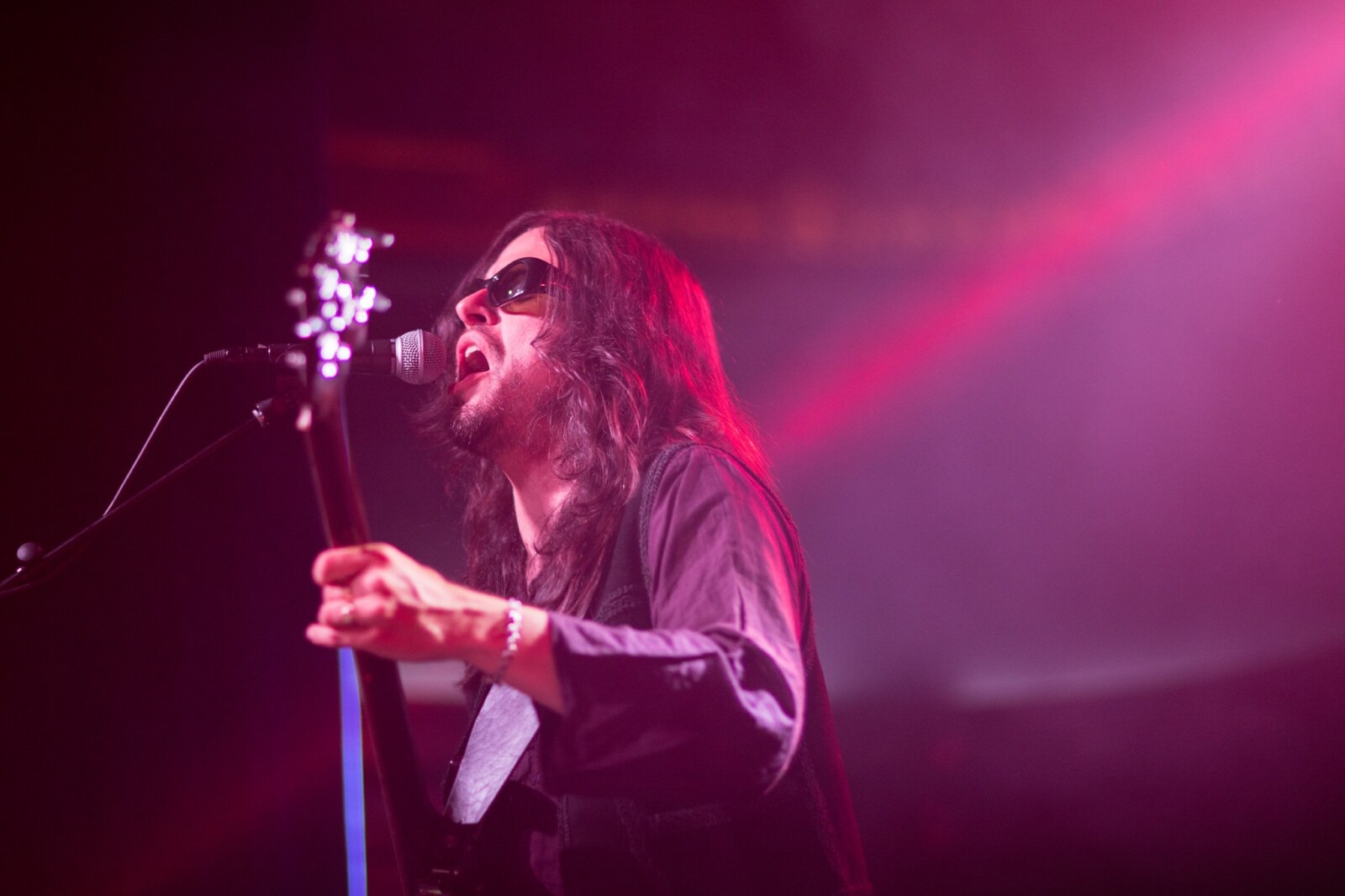
“Motorcycles and the Rock and Roll bands we like is pretty much all we talked about on the road.”
When I heard back from Steve that Narita was down to do the shows and he was also into playing High Rise songs, I thought “Fuck No am I not going to do that and Fuck No is somebody else going to do it”. So I called up TJ, who was then on the road as the tour opener for AMT with his band at the time, Babylon, I asked him if he’d be into backing Narita. TJ hits so damn hard so I knew he would be capable of handling the cruel punishment it requires a drummer to play real Speed Freak music. That kind of drumming takes some serious stamina and I think he’s like me, we both aren’t really happy with a show unless we got that feeling like we’re dying a little, I think some drummers really don’t wanna go that hard but you can’t stop him. To me, the authenticity of the playing of those songs is mostly in the ability to even do it. TJ does it fucking right and plays like anyone hearing High Rise songs would want it. When he got back from his tour we put together a set messaging with Narita of what songs we wanted to do, we ended up doing all High Rise songs with 2 Green Flames songs. We booked 4 other West Coast dates to make the most of him coming and so we could play for as many people we could. When Narita arrived, we rehearsed maybe 30 or 40 minutes the day of the show. The first show went well but by the 2nd show in San Francisco we were on fire. When the shows were over and we all went home, we were all kind of stunned that it was such a success. Really the peak of disbelief was when Nanjo messaged Narita and told him we were great and we should continue. With his blessing and excitement, we continued to figure out what our next move was. Narita is especially respectful of the legacy of High Rise and even more so of Nanjo. The band name was also a shock, as it was with Nanjo’s blessing that we use it. On the short tour we had so much time to really connect on things. Motorcycles and the Rock and Roll bands we like is pretty much all we talked about on the road. We play “free music” if you want to call it that. But I think all of us have a real critical and maybe even cynical opinion about a lot of Rock and Roll. When we began to make our own music, it came out of us truly controlled and filtered. There are a lot of rules in the music we like I think. But what comes through I think in Narita’s music that’s so powerful is how it is almost a condensed worship of the part of Rock and Roll that only happens in brief moments in most songs, but for him that moment lasts the whole song. I think the motorcycle comparison of the band is a bit of the same thing, Narita’s guitar is free and wild and what makes it the most sweet is the presence of danger and it’s risk of crashing.
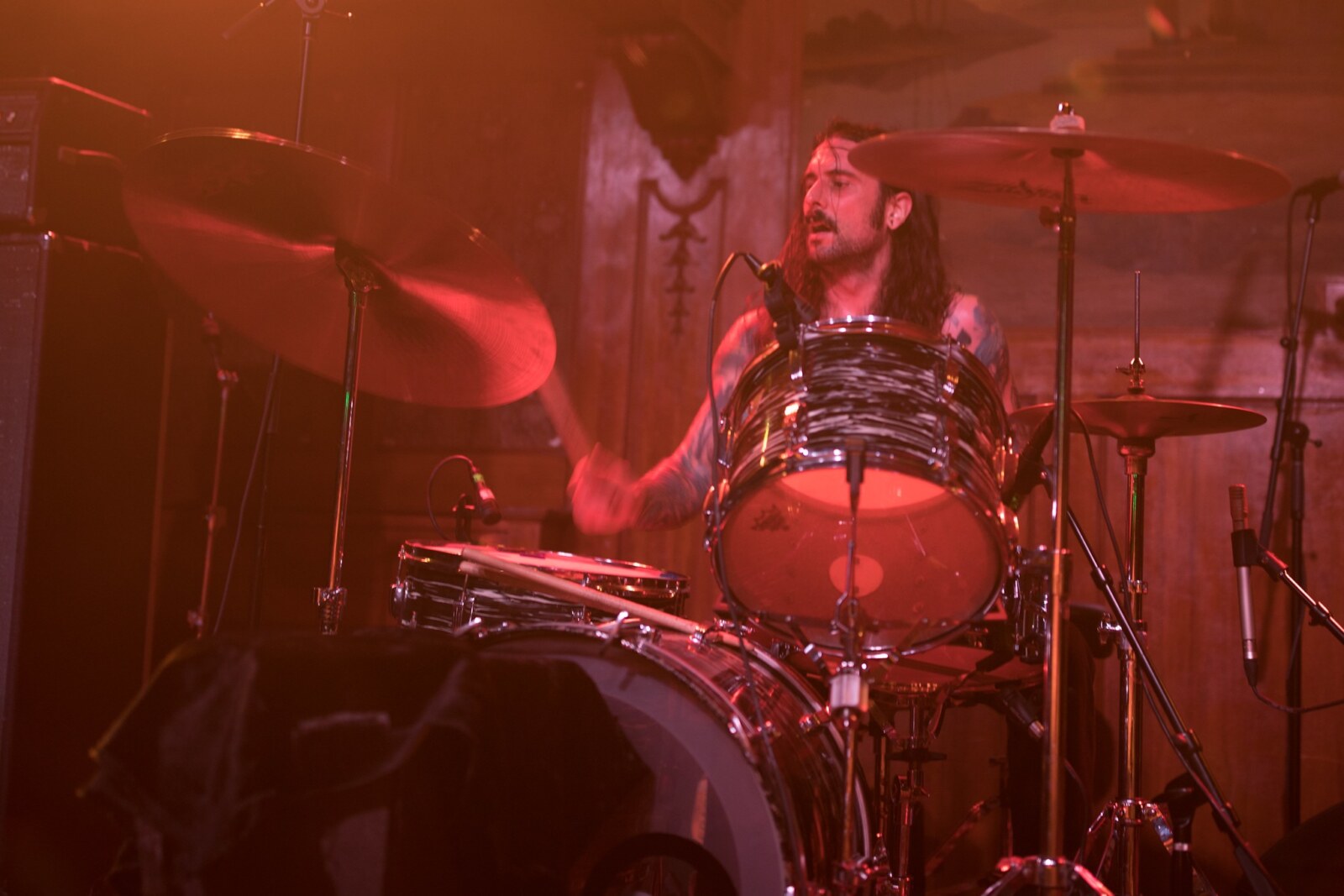
Black Editions released your debut. Can you share some further details how your latest album was recorded?
I went to Tokyo in January of 2018, a few months after our first shows, for the grand opening of a Psychedelic Space Age bar I designed called Supernova. This was another huge thing for me that year that I just could not believe was a reality, to design a space-age bar, get flown out for it, and the bar turned out incredible. Another blessing to PSF was my opportunity to go to Japan, so without Supernova who knows how we could’ve made this record, at least it sped up the process. We did write Redline through email though. Well, while in Tokyo, Narita booked 2 days to jam in an hourly studio, we jammed for 2 days while he had a fever. We recorded our jams for hours and hours, and upon returning home, I worked with TJ on the highlights of those jams that would become our songs to rehearse for the record. Narita came to Los Angeles some months later and we booked a studio with Toshi Kasai for 2 days recording these tracks. Real magic happened in that studio. For one, we still didn’t know if what we were about to do was going to be any good. The spirit was uncertain all around. There was a huge pressure on us in the studio, but I think Toshi helped us a lot in creating a nice atmosphere for us to work, and also being Japanese he was able to help Narita get what he needed easily and make him comfortable, so he was a great asset in making the recording so successful. With all the pressure we felt, we ended up making a really exciting Rock and Roll record. I think we made something really special. It’s super punk and really different to what’s being made now, I think. Narita and I had a lot of direction from Nanjo from his messages. He said it was crucial I sing in English which, initially, I was disappointed because I was really excited to try to sing in Japanese. Maybe some listeners will hear this record with certain expectations that the singing sound like Nanjo. But Nanjo told me, don’t sing like Nanjo. Don’t sing in Japanese, it was forbidden. He told me to sing as myself and I’m grateful for it, because it lead to something real and that’s really all that matters. He encouraged me to sing harder and rougher too, and I think that direction led to the LP being what it is. It was a big pressure to live up to Nanjo’s expectations but his approval of my vocals for the recording is really all that mattered to me. His advice to me and Narita were indispensable. I want to thank Nanjo for all the time he put into in helping us.
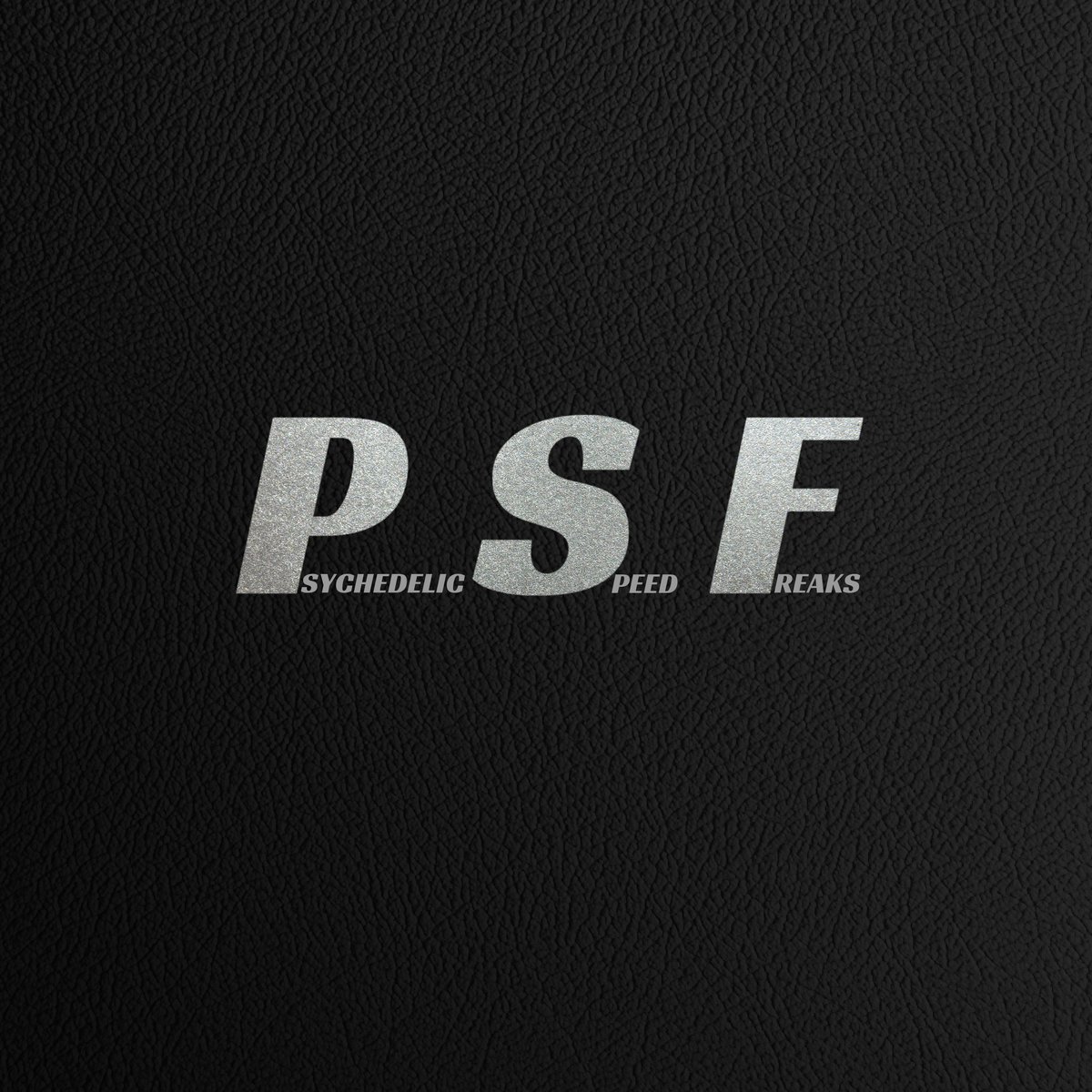
Munehiro Narita is a legendary guitarist from High Rise. How about you, Jasso? You were part of bands like Over-Gain Optimal Death and The Antarcticans. Would love if you can share some background about bands you were involved with.
Antarcticans was my first band, our first major show was opening for Acid Mothers in 2002. It was all instrumental. It was a lot about tone and feedback, dark and dramatic atmosphere. We were really really loud and played 20 minute compositions. It was really challenging because we were trying to develop things we didn’t understand yet, they had to be written over long periods of time for us to really understand them and we worked really hard on it. We used a lot of story telling to create songs around. OGOD came about as a project to play the kind of music I had become consumed by then, and that’s the mainly Japanese In-The-Red bands like High Rise, Mainliner, Les Rallizes, Gasaneta and any other things I could find that sounded like that kind of hard distorted fast music. That influence was an entirely opposite approach than what I was used to which influenced me to do pretty much what I continue to do now whenever I play and that is to have as little written of a song as possible and let the feeling and performance create a new life to it every time you play it. Also, TJ plays guitar and vocals in his band Deathchant here in L.A and hopefully soon he and I will start on a new duo project with him on drums. We want to do something different than what we’re used to, so it might be hard using the instruments we know so well to achieve that. I think we are going to try to think outside the box, so who knows maybe, there won’t be any stringed instruments, we’ll have to see.
“For me the music I play and listen to is really a form of escapism.”
What would you say influenced you the most?
I’ve always been into the spectacle of music. Any band I liked as a kid to now has to have some kind of inhuman quality, some kind of extraordinary quality that takes you away in the music, away from anything you can relate to, for me the music I play and listen to is really a form of escapism. I love the image of Rock and Roll, the uniform/costume of rebellion and the commitment to only it; Rock and Roll. I think I fell in love with Punk before I even got to hear it. It’s the spirit in musicians who transformed themselves visually to really become something new and inspire an atmosphere of excitement that makes the smelly bar in a piss alley the only place you’d want to be in that moment. I think Punk influenced me the most as a young teenager but then I got turned off by how conformist it was. So in High School I got into Surf and 60s Garage and especially connected to Devo, The Mummies, and Link Wray. But I never really connected to current music. It wasn’t until seeing Acid Mothers did I feel like I was a witness to something really wild and it was happening now and it sparked something in me that made wild seem possible. I think Acid Mothers paved a way for a Psych scene to happen in the US. Before them there wasn’t really a lot happening that was really far out. Most Psych bands were just strummy British-sounding jam bands, there was nothing exotic or esoteric at all in their Psych Rock. But then once or sometimes twice a year AMT would roll through and it seemed to create a new standard to it to uphold.
I’d have to say if it’s one single person, Asahito Nanjo and his many concept bands helped inspire me the most. High Rise, Mainliner, Musica Transonic and all of his diverse projects and his label, La Musica, probably had the biggest effect on me. I like when a band only does one thing and doesn’t pollute itself with too many ideas. Nanjo does this. But as he’s usually a bassist, and me more of a guitarist in my thinking, and his vocals are pretty inimitable I think it is more his philosophy that captured my thought process and the unique worlds he created with his different bands. Narita’s guitar playing certainly influenced me, but he plays like Narita and I think I play like me. I love how far out he goes, it’s something only he knows how to do. Makoto’s guitar is amazing too, but I cannot understand his playing at all even though I’ve seen him play maybe 100 times. These days I listen to The Stooges and Hawkwind mostly, the same CDs on a loop pretty much. A lot of people tell us after a PSF show, you guys sounded like High Rise and the Stooges. One person said he felt like he had seen High Rise, the Stooges, Motörhead and Les Rallizes at once. That’s pretty much all of our biggest influences at once so being able to harness that energy in one band and convince an audience, it’s amazing and addictive.
What are some future plans?
I really want P.S.F. to play Europe and Japan. But I/We/You who want to see us play need help to do so. That’s really all I want to do next is get out of the US and play these songs literally anywhere else. We also recorded a second album last March in L.A. in between dates doing California Flashback, the traveling tour put on by Black Editions. I listen to these fucking rough mixes everyday thinking, Jesus Christ. They’re nuts. So I’m excited that they’ll be heard by others soon and we can even play some of those new tunes at our next shows.
“I think what is hard is succeeding in transporting one’s self and an audience.”
How important is improvisation for you?
I think it’s essential as the musician playing it to be surprised by what you and your band are making in that moment. The concert is a moment where the audience is also a key component. The audience is what’s most essential to pushing the player into waking up and tapping into the collective spirit. I think improv is great when it is great, and horrible when it isn’t great. It’s a nightmare when you’re performing live and it isn’t working for some reason, but it’s incredible when everything is aligning and maybe it’s the best kind of music when it does work out. It’s necessary in Psychedelic music, because to me I believe real Psychedelic music is about unanswerable questions and it’s not very convincing to do Psychedelic music that doesn’t take any risk outside the path of effected blues music. I think it’s necessary to lift songs into an unsure territory, for keeping the musicians working at their best in listening to each other and expressing also what’s most pure within themself. But also I think improvisation can be a bit of a lie. Because Rock and Roll is a formula. Music is formula, and anyone honest should admit these instruments are reasonably easy to play and a 4/4 count isn’t exactly going to unlock the Spirit Molecule. Rock isn’t hard at all. I think what is hard is succeeding in transporting one’s self and an audience. Straight Rock can do that too, if done well. I don’t really listen to Jazz and am illiterate when it comes to the names of notes or reading music. I think real improv is the ability to move in between time signatures and keys. I think that is more Jazz than Rock. But as I think most Jazz musicians have a deeper understanding of music in an academic level, I wonder if what they do is truly improvisation either and not just the same trickery that happens in Rock and Roll jamming where people move around a theme and come together at a predetermined part or by a body cue. Jamming is important for me to stay interested in the song. Playing the same song the same way over and over isn’t interesting to me because there is no way to get past it being just good. It can only be as good as it is written. But jamming feels more daredevil-ish and when it is at its best I feel surprise and a sense of confidence and pride that I made it out alive. A song can be written improvised. A bunch of people enter a room, pick up an instrument and start playing. But after the notes, riffs and changes are discovered, any time it’s played again, it’s a song. Songs can’t really be improvised anymore after they are found. After the first playing of an improvisation, everything afterwards is jamming.
Narita lives in Tokyo and the two of you live in Los Angeles. What are some of the things that connect you through those long distances? Do you think there are parallels to living in these cities?
I think Tokyo and L.A. are similar in how much we have to work to live where we do. There are also similarities I see in the two cities that seem to bond us further. Narita works, a lot. I work a lot. TJ’s always working. It’s not like the 60s where people are just living it up in the canyon and partying with not a care in the world, we’re at fucking work all day man. I think these kind of strains create the music and sometimes I think this is what creates “Improvisation” bands. Like, only princes have the luxury to perfect every note of a song. We don’t have time for that shit, just turn on the amps and play a riff and let’s go. And I think there are similarities in us as people fitting in our own city. I think people might be confused that L.A. and Tokyo are really happening for music. But I can’t say L.A. is exactly gagging for my music. I met TJ because I couldn’t find anywhere to play in LA to save my life and he was setting up good heavy shows and finally through him I was able to get shows. Music is really superficial in L.A. and is mainly background music for mingling or being outside smoking cigarettes instead of inside the venue. Music is for bars here but bars aren’t Art curators. It is really hard doing my music in L.A. If it weren’t for PSF and its audience I don’t think I would be able to really be myself, or at least the person I most want to be. So we are quite excited by this project and I hope the momentum continues to get us to performing for everyone reading this.
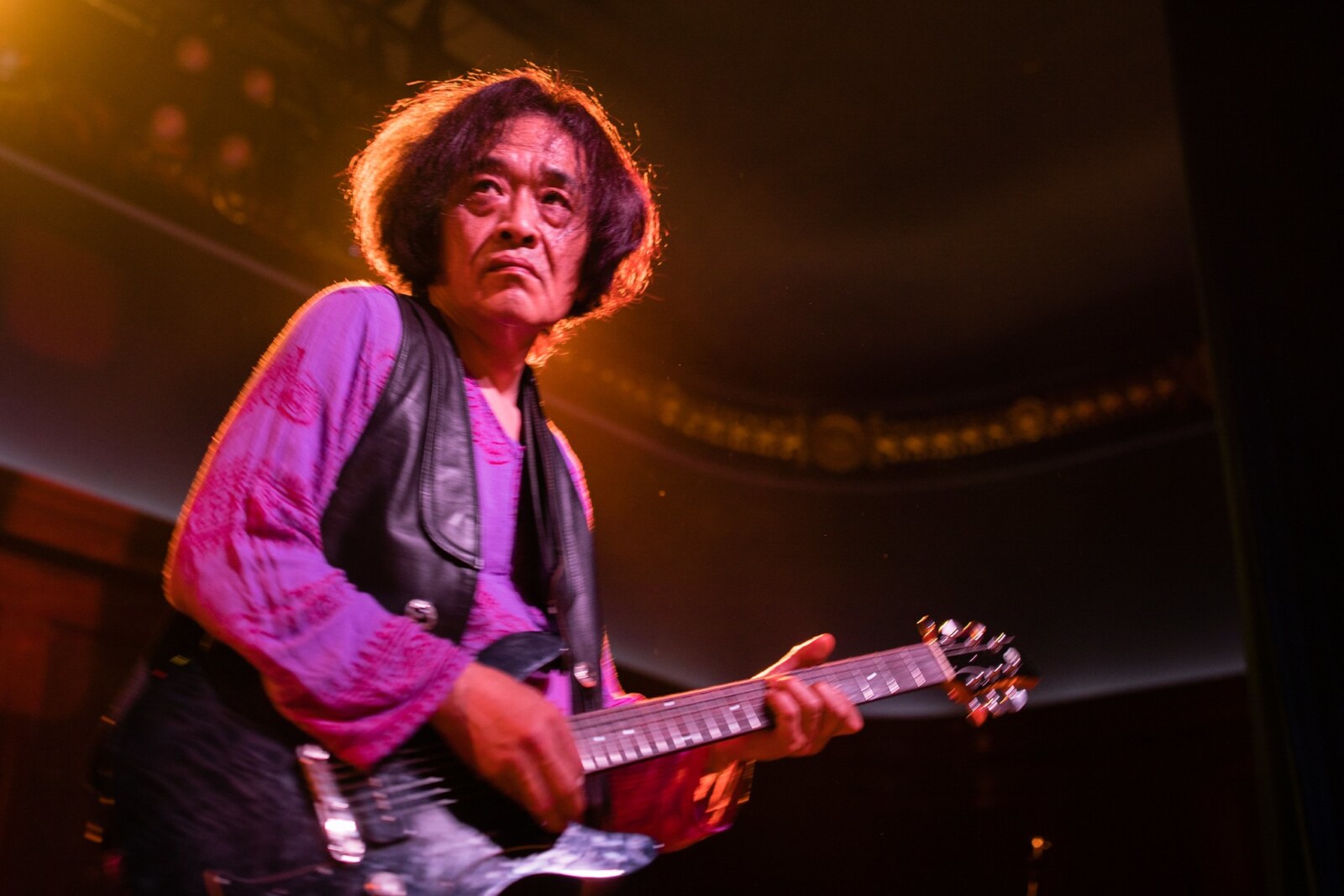
Munehiro Narita, would you like to comment your guitar technique? Give us some insights on developing your guitar technique.
I’m using 2 pedals mainly. A customized Maestro fuzz phazzer and a handmade fuzz. They make a range of so many sounds by just adjusting the knobs. I’ve used them for a long time. I use old style guitar strings. F150 10-38 gauge. Also Jimi Hendrix used them. I always add vibrato with my fingers, never with a whammy bar. My picking is soft with a 0.5 thin pick.
What would you say influenced you the most? Have influences changed during the years?
In sounds, I was influenced from James Gurley and Leigh Stephens.
In wah wah style from Jimi Hendrix, Davie Allan and Ron Asheton.
Vibrato from Mike Bloomfield and Santana.
Performance from Johnny Thunders and Wayne Kramer.
Almost they are not changed in 30 years. But after 2000 I tried funk guitar. Influenced from many R&B guitarists.
Would you say Psychedelic Speed Freaks is a continuation of High Rise? If I’m not wrong you were called Psychedelic Speed Freaks and after awhile change it to High Rise?
Some things are similar yes. But I’d like to make my next sounds with the new PSF. In the 80s, PSF changed its name to High Rise to avoid limiting the style. But now it’s a better way for me, these limitations.
What are some of your favorite memories from recording High Rise albums?
Recordings were always hard for me. Because of conflicts among members and producer.
Did the band often play live?
Not so often. High Rise was not popular in Japan. The PSF label owner hated Japanese mass media and musicians of the mainstream. So we were hated by them.
“I was interested in underground jazz scene.”
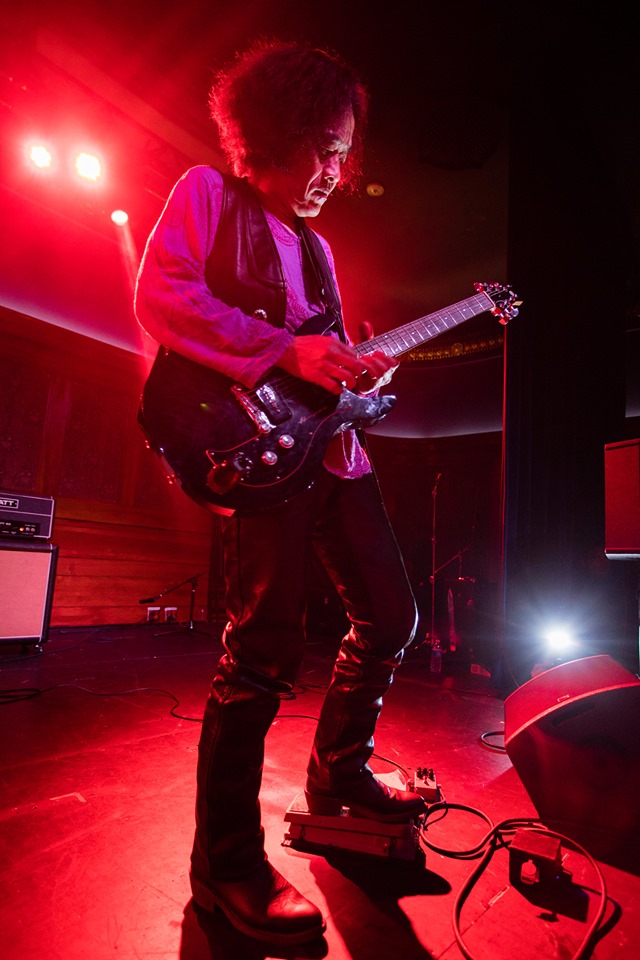
How would you comment the underground scene in Japan? There’s a lot of bands today and even back in the late 60s and 70s you had a lot of very interesting bands.
In 60s I was child and used to hear mainstream ‘group sounds’ on TV. But I thought they are not cool. I didn’t know other underground bands.
In 70s I saw only Les Rallizes Dénudés many times. They were so cool. But I wasn’t interested in other bands back then. I was interested in underground jazz scene.
How about projects like Kyoaku No Intention, Green Flames and Kousokuya?
Kyouaku No Intentions was an improvisation unit. With Hiroshi Yokoyama on synthesizer at first. It was so experimental. In the 90s I played again with Shoji Hano on drums.
Kousokuya was Jutoku Kaneko’s band. I played drums on it. My drums are so strange.
Green Flames is my recent band. At first I tried to make noisy funk music. But it turned into a funky R&R band.
One of your first recordings is probably with a band named Tokyo?
Tokyo was a “No New York “ style new wave band. It was my first band. I could‘t play guitar well. I played it roughly. It was my beginnings of improvisation.
– Klemen Breznikar
Black Editions website
PSF on Bandcamp
Black Editions on Bandcamp
Headline photo by Linda Chi


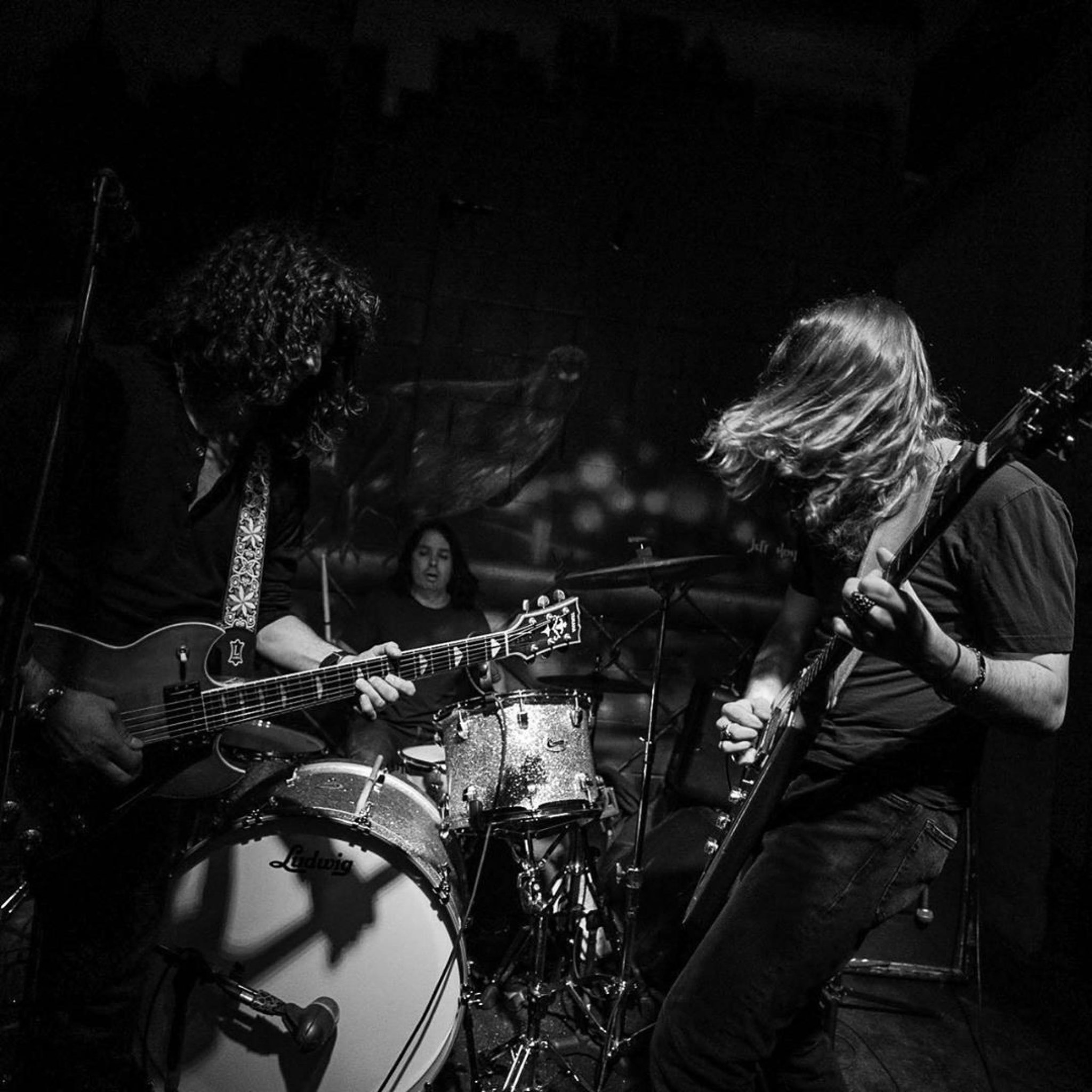
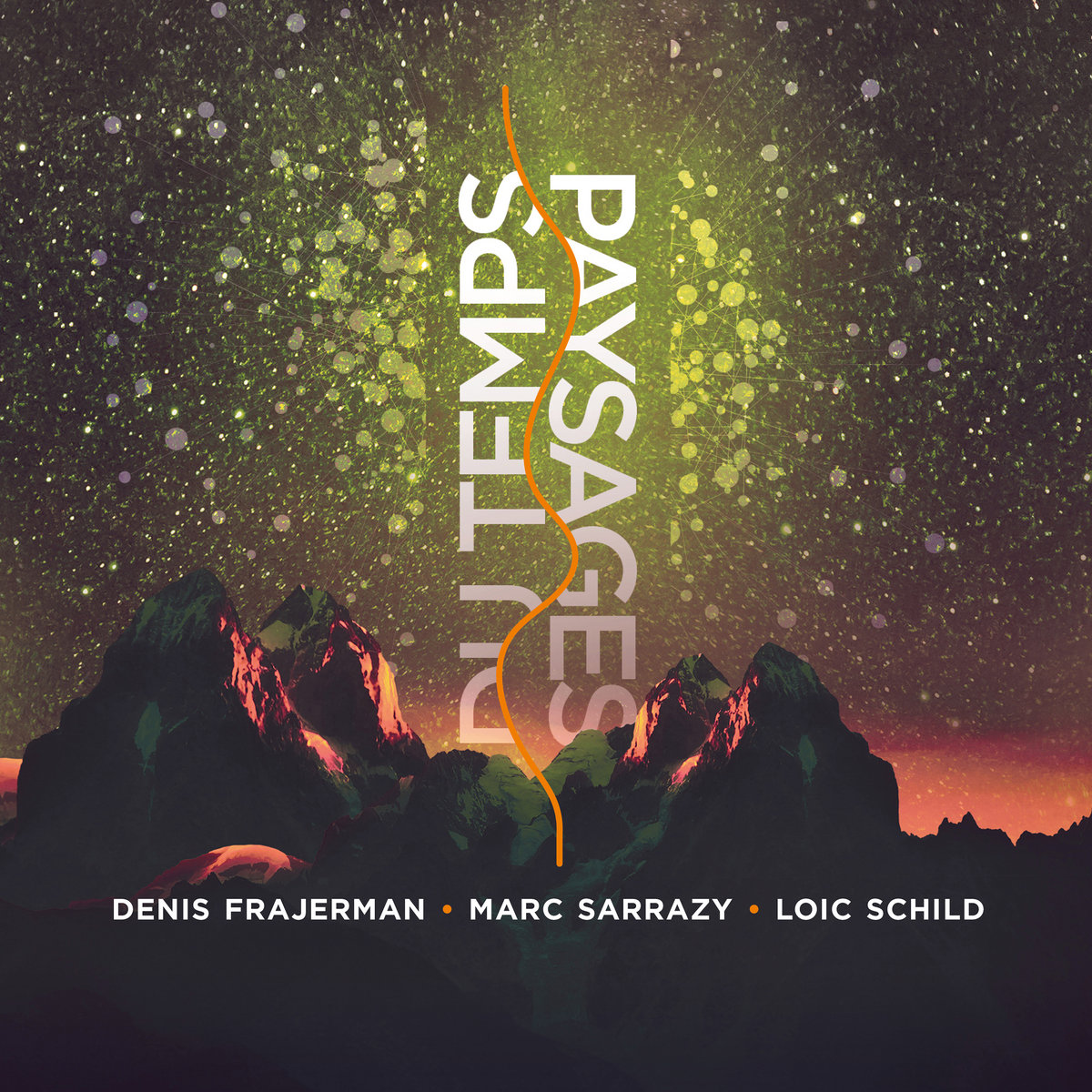
Good interviews, Jasso’s verbose but articulate. Interesting group.